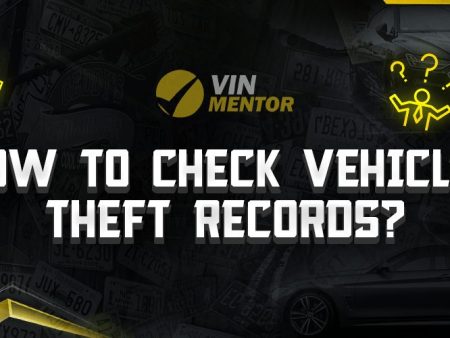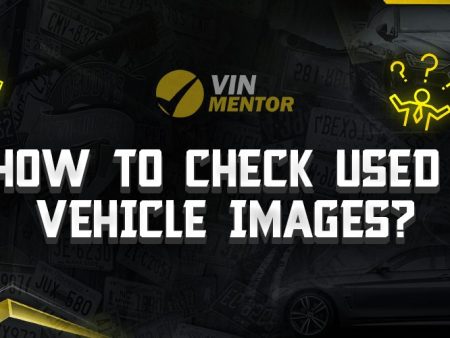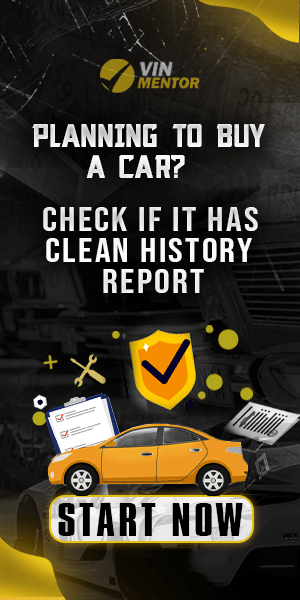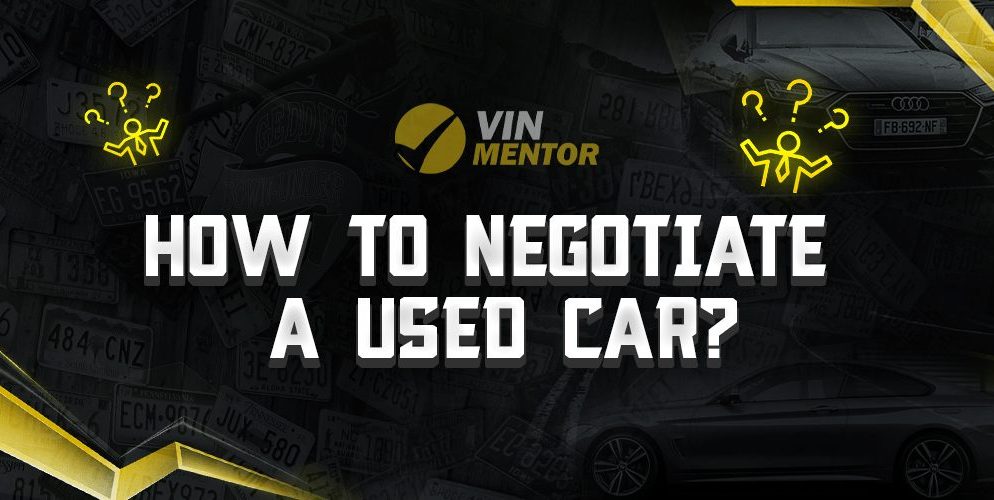
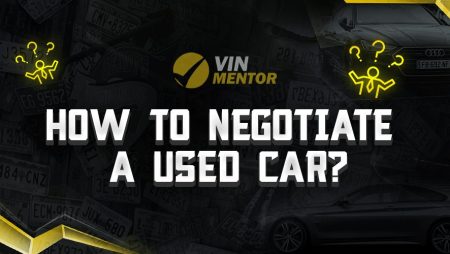
Purchasing a used car can be a cost-effective way to get behind the wheel of a reliable vehicle. With the vast selection of used cars available on the market, it is possible to find a car that fits your needs and budget. But how do you negotiate the price of a used car?
Key Takeaways
There are some strategies you can use to negotiate the price of a used car effectively, including:
- How to research the market value of the car.
- Identify your negotiation leverage.
- Communicate effectively with the seller.
In this article, we will provide tips and strategies for negotiating the price of a used car. By following these guidelines, you can increase your chances of getting a good deal on a used car that meets your needs and budget.
Should I Buy A Used Car?
Deciding whether or not to buy a used car is a personal decision that depends on your individual circumstances and priorities. There are advantages and disadvantages to consider, and it’s important to weigh the pros and cons carefully before deciding.
Advantages of Buying a Used Car
Buying a used car can be beneficial in some ways, two of which we’ve listed below:
- Lower Price
One of the main advantages of buying a used car is the lower price. Used cars tend to be significantly cheaper than new cars, which can be a good option if you’re working with a limited budget.
This is because new cars tend to lose value quickly after they are purchased, while used cars have already gone through this initial period of depreciation. As a result, you may be able to get more value for your money when buying a used car.
- A Variety to Pick From
Another advantage of buying a used car is the wider range of options available. There are often more used cars for sale, which means you have a wider range of makes and models to choose from.
This can be especially helpful if you have specific requirements or preferences when it comes to the type of car you want, as it may be easier to find a used car that meets your needs.
The Drawbacks of Buying a Used Car
There are also some potential drawbacks to consider when buying a used car.
- Unknown History
One of the main concerns is the unknown history of the car. With a used car, you may not know everything about its history and how well it has been maintained. This can make it more difficult to predict how reliable the car will be and what repairs may be needed. It’s important to do your research and ask the seller about the car’s history and any maintenance or repair work that has been done.
A vehicle history report can also be helpful in this regard, as it can provide information on the car’s ownership history, accidents, and any damage or repairs that have been made.
- High Maintenance Costs
Another potential drawback of buying a used car is the higher maintenance costs. Used cars may require more maintenance and repairs than new cars, which can add to the overall cost of ownership.
It’s important to be prepared for these costs and set aside money for any potential repairs or maintenance that may be needed.
- No Warranties
In addition, used cars may not come with the same level of protection as new cars. New cars often come with warranties that cover certain repairs and maintenance, while used cars may not have these protections.
This can be a concern if you value the peace of mind that comes with knowing you have protection in case something goes wrong with the car.
Ultimately, whether or not a used car is a good option for you depends on your individual circumstances and priorities. If you’re working with a limited budget or want to get more value for your money, a used car may be a good choice.
However, if you value reliability and are willing to pay more for the peace of mind that comes with a new car, it may be worth considering a new car instead.
There are a few things you can do to minimize the risks of buying a used car and increase the chances of getting a good deal. We’ll talk about some of them in the next section.
How to Prepare For a Used Car Purchase?
Purchasing a used car can be a great way to save money and get a reliable vehicle, but it’s important to do your research and be prepared in order to get the best deal. Here are some steps you can follow when planning to purchase a used car:
- Determine your Budget
Before you start shopping for a used car, it’s important to determine how much you can afford to spend. This will help narrow down your options and make finding a car that fits your needs and budget easier.
Consider factors such as your income, debt, and other financial obligations. It’s also a good idea to set aside money for any potential repairs or maintenance that may be needed.
- Research Different Makes and Models
Once you have a budget in mind, start researching different makes and models to find one that fits your needs and budget. Consider factors such as fuel efficiency, reliability, and safety ratings.
You may also want to consider the size and type of car that will best suit your needs, such as a sedan, SUV, or truck. There are many resources available online, such as consumer reports and car review websites, that can help you compare different makes and models.
- Check the Car’s History
Before making a purchase, it’s important to know the car’s history. You can obtain a vehicle history report, which will provide information on the car’s ownership history, accidents, and any damage or repairs that have been made.
A vehicle history report can also help you identify any potential problems with the car, such as flood or accident damage. It’s also a good idea to ask the seller about the car’s history and any maintenance or repair work that has been done.
- Test Drive the Car
Once you’ve found a car that you’re interested in, take it for a test drive to get a feel for how it handles and to look for any potential problems. Pay attention to the car’s performance, handling, and any unusual noises or vibrations. It’s also a good idea to test the car’s features, such as the air conditioning and radio, to make sure they are in good working order.
- Have the Car Inspected
It’s a good idea to have a mechanic inspect the car before making a purchase. They can identify any potential problems and give you an idea of what repairs may be needed. An inspection can also help you determine the overall condition of the car and whether it’s a good value for the price.
- Negotiate the Price
Once you have all the information you need, you can negotiate the price with the seller. Be prepared to negotiate, and don’t be afraid to walk away if the price isn’t right. It’s a good idea to do some research beforehand to get an idea of the market value for the car you’re interested in, so you know what a fair price is.
You may also want to consider offering a lower price if the car needs repairs or any other issues.
- Close the Deal
Once you’ve agreed on a price, you’ll need to finalize the purchase and sign any necessary documents. Make sure you get a copy of the title and any other documents related to the car. You’ll also want to transfer the car’s insurance and registration into your name. It’s a good idea to keep all of these documents in a safe place, as you may need them in the future.
By following these steps, you can help ensure that you get a good deal on a used car that meets your needs and budget. Don’t rush into a purchase; take the time to do your research and make an informed decision. A little bit of preparation and due diligence can go a long way.
Negotiating a Used Car 101
Negotiating used car prices can be a stressful and intimidating process, especially if you are not familiar with the ins and outs of the process. However, with some knowledge and careful preparation, you can negotiate a good deal on a used car and save yourself a significant amount of money.
Here are some tips to help you successfully negotiate used car prices:
- Do the Homework
Before you even start negotiating, it’s important to do your homework and gather as much information as possible about the car you are interested in. Look up the car’s value using online resources such as Kelley Blue Book or Edmunds.com, and compare it to the asking price. This will give you a sense of the car’s market value and help you determine whether the seller’s asking price is reasonable.
- Know your Budget
It’s important to have a clear budget in mind before you start negotiating. Determine how much you can afford to pay for the car, taking into account any financing options you may be considering. Having a firm budget will help you stay focused and avoid overpaying for the car.
- Be Prepared to Negotiate
Don’t be afraid to negotiate the price of the car. Remember, the seller is trying to make a profit, so they will likely be willing to come down on the price to some extent. Be confident and assertive but also respectful and polite. It’s important to remember that the seller is a person, not just a business, and your goal is to come to a mutually beneficial agreement.
- Make a Counteroffer
Make a counteroffer if the seller’s asking price is higher than what you are willing to pay. Start by offering a lower price and seeing how the seller responds. Remember to be reasonable and to stay within your budget. Don’t be afraid to walk away from the deal if the seller is unwilling to meet your price.
- Consider Financing Options
If you are considering financing the car, be sure to shop around and compare rates from multiple lenders. This will help you get the best deal possible. If you are able to secure financing at a lower rate than what the seller is offering, you may be able to use this as leverage in your negotiations.
- Don’t be Afraid to Walk Away
If you are unable to come to an agreement on the price of the car, don’t be afraid to walk away from the deal. There are plenty of other used cars out there, and it’s important to stay true to your budget and not overpay for a car.
- Get the Car Inspected
Before you finalize the deal, it’s a good idea to have a mechanic inspect the car. This will give you a sense of the car’s condition and any potential issues it may have. If the seller is unwilling to allow you to have the car inspected, this could be a red flag, and you may want to consider walking away from the deal.
- Take your Time
Don’t feel rushed to make a decision. Take your time to consider all of your options and do your due diligence before making a purchase. Remember, you are making a significant financial investment, so it’s important to be thorough and thoughtful in your decision-making process.
Final Words
In conclusion, buying a used car can be a great option for those looking to save money on the upfront cost of a vehicle. It is important to do thorough research and due diligence when purchasing a used car, including getting a vehicle history report, having a mechanic inspect the car, and negotiating the price.
By taking the time to assess the condition of the car and its value properly, you can make an informed decision about whether or not a used car is the right choice for you.

